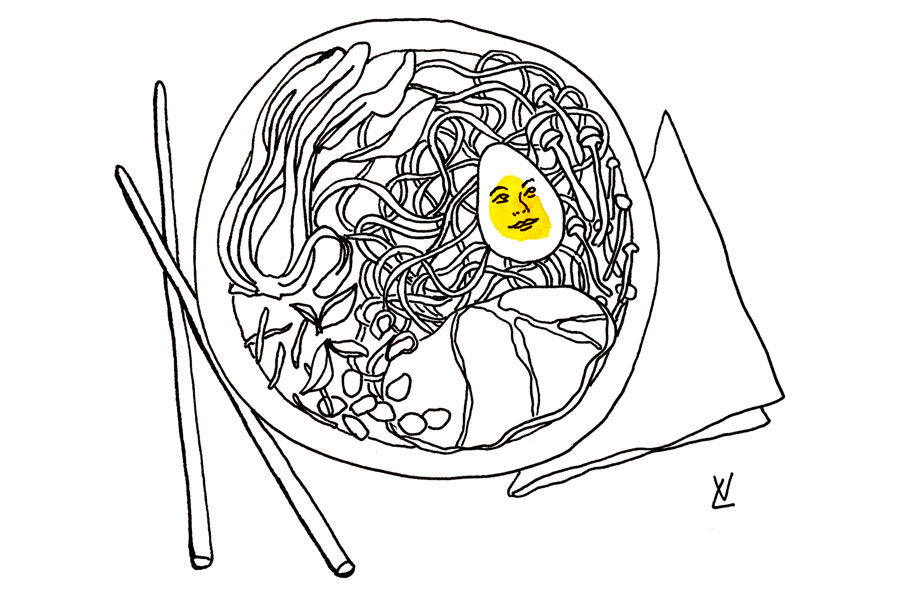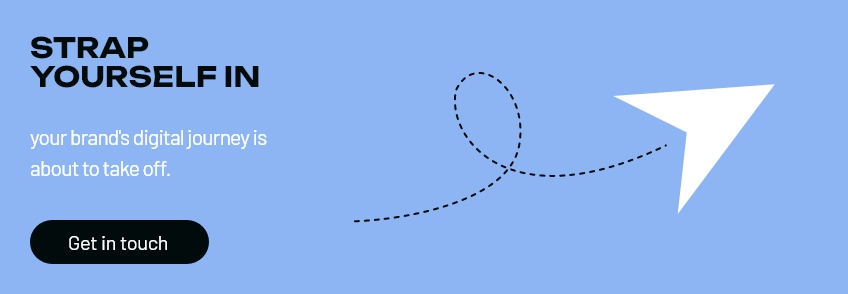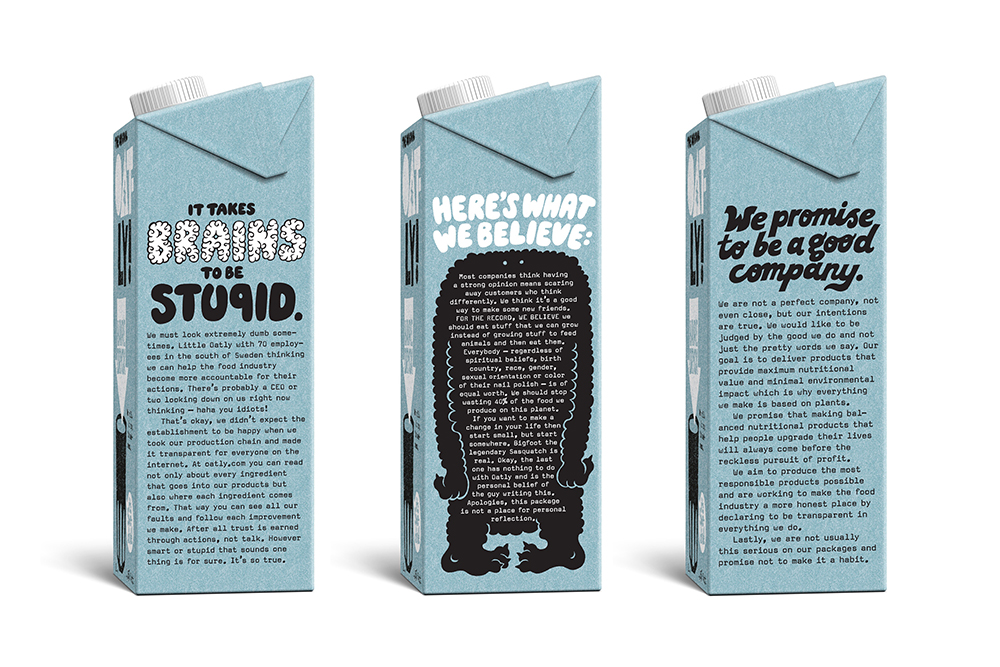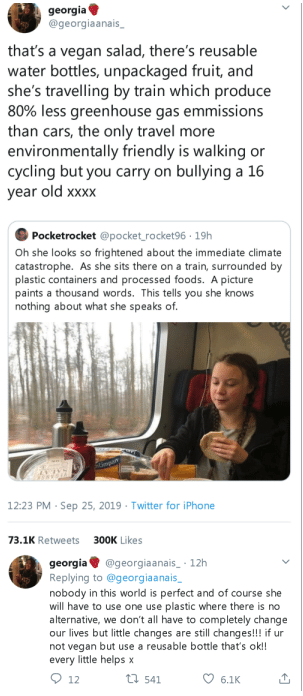Oatly, the brand who made oat milk the monolith of milk alternatives has had a fascinating history with some bold marketing choices.
Recently the brand has come under fire for selling a stake of their company, linking them to Blackstone – a private equity firm with alleged shady connections to both Trump supporters and deforestation companies in Brazil.
Is this a case of a disruptor brand becoming a behemoth business participating in the very system they were railing against? Let’s discuss!
The Post Milk Generation
Milk has not had a good time, with a new alternative popping up seemingly every day. Instead of using Gen Y, Gen Z and all the Gens in between, the Vox have suggested using milk preferences instead. It checks out. Milk was king, then came the 70s and the soy milk generation. Soy was dropped like a stone when almond milk came along and now it’s oat time. So if you ever want to find out how old someone is or how they interact with social media, sniff their tea?

Oatly got started when a team of Swedish scientists discovered the nutritious alt-milk phenomenon made from oats, water, and enzymes. Their marketing has had a storied history, at the beginning they had almost no media budget which is why they decided to use their packaging as a media channel. Less is not more with meandering quirky copy on every available surface.
To get the word out, they talked to baristas in coffee shops, the (influencers of the offline world) to spread the good oat word. As their popularity grew, so did their opposition. Then came the milk wars.
The Milk Wars
Angered at the idea that people were shunning milk, The Big Swedish Dairy Lobby* (*not their real name) decided to enter into a bitter advertising feud. They shouted ‘Milk is Milk!’ and even went as far as to make up silly names for their competition in parody attack ads on TV. In a genius marketing move, Oatly went and trademarked the silly names, and started using them on their packaging. When their anti-milk slogans got slapped with lawsuits, they printed the details on their packaging.
Championing the spirit of disruption, the brand has always given the appearance of radical self awareness. Even their latest sustainability report has a big sticker that shouts about their poor performance compared to last year.
Their latest creative foray has seen them temporarily suspend oat milk selling activity to create an Oatly Department of Distraction Services (ODDS for short). Here they have frankly outdone themselves with online entertainment. Bored at home in 2020? Why not watch a video on Olympian level porridge making, make your own t-shirt,or get your wacky dreams illustrated by their own resident art director?

Milk Gone Bad
The recent news about Blackstone hasn’t been the first time the brand has landed in hot water. With such strong convictions, every action that goes against those values goes a long way to breaking down trust built between brand and customer.
Oatly may be trailblazers in the market, but they’re not infallible. As time goes on, more and more competitors are joining in the oatastic fun.

Refreshingly, they would rather not be the only players in the space. Mike Messersmith (President, Oatly North America) has been quoted as saying:
“I think it would be incredibly hypocritical of us as a company if we said both that we believe oat is the best source ingredient — best product from a nutritional, environmental, sustainability basis — but then also we should be the only ones that do it, I think the reality is, we would be thrilled if the entire category was nothing but oat milk tomorrow.”
Milk it for all it’s worth
As a consumer, it can feel impossible to make ethical choices when buying anything. A favourite TV show of mine, The Good Place illustrated this dilemma, coming out to say that even though a lot of our actions may be well intentioned, they are probably negatively affecting the world.
Is there ethical consumption under capitalism? Probably not, but we as people can only make choices that are available to us. Voting with your wallet is a phrase that’s often used to facilitate smugness in certain individuals. It’s not always that easy. Shopping sustainably is classist and an incredibly nuanced issue. How much responsibility sits with the consumer and how much with the brand?
Brands that tout themselves as ethical walk a tightrope everyday, stuck between making decisions that make them money and uphold their image.
How could I talk about a Swedish brand and environmentalism without mentioning Greta Thunberg? The tweet below perfectly sums up how our choices don’t exist in a vacuum.
Change isn’t easy
So has Oatly lived long enough to see themselves become the villain? Is sustainable growth possible? We’ll have to wait and see with a dose of healthy optimism. Change isn’t easy, but all we can do is make the best choices that we can, until we can do better.

Found is the Everysearch™ agency. Masters of search performance across all digital marketing platforms. Employing PPC, SEO, paid social, and creative content, they harness the power of data and AI to craft and execute winning digital marketing strategies.




